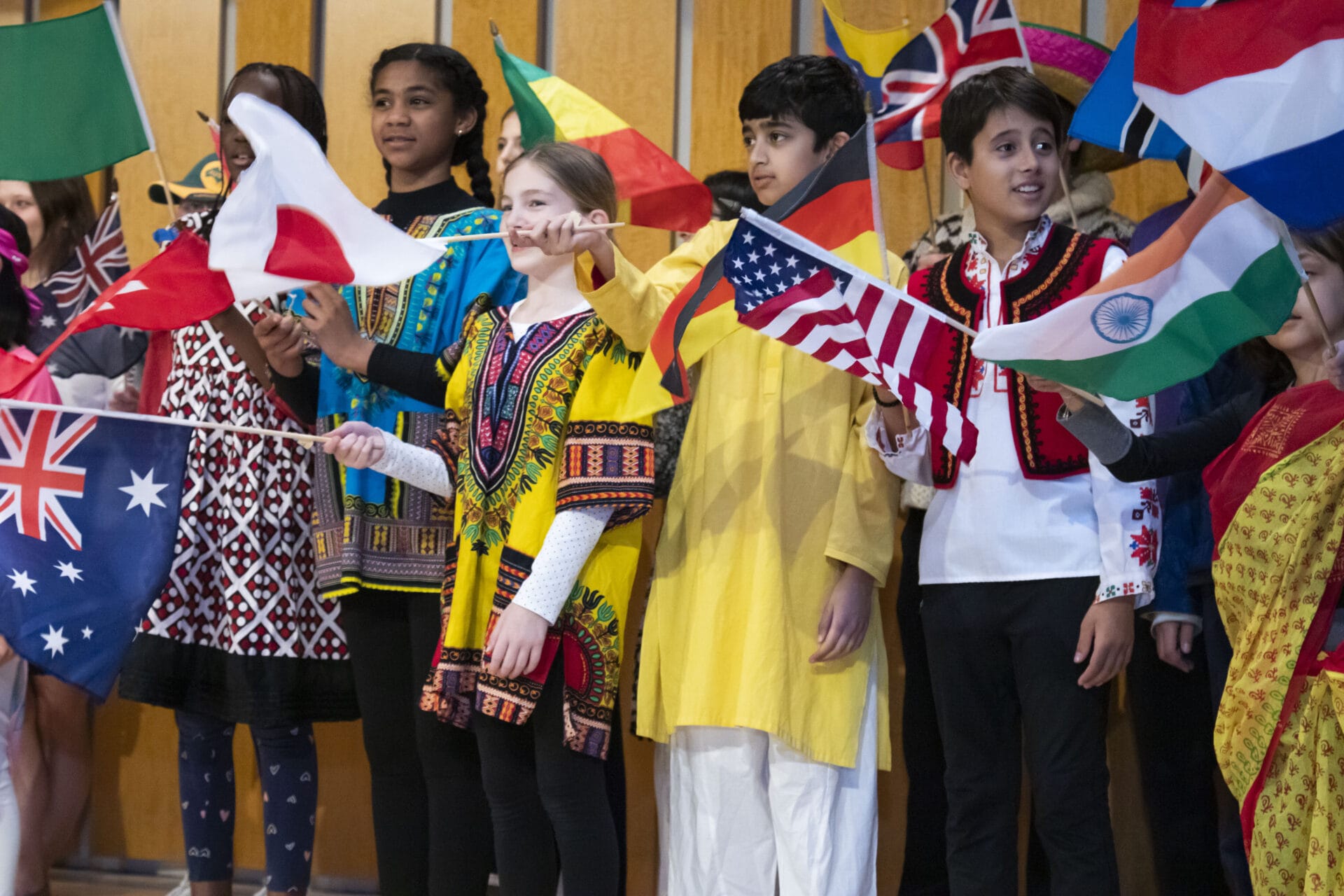Popular use of (and familiarity with?) the word “nonsectarian,” which the Oxford English Dictionary defines as “not having an affinity with or involving a religious sect or political group,” have declined precipitously in recent decades. Google’s search engine reports only three occasions of the word in written news media this calendar year to date. Maybe MICDS can help “nonsectarian” mount a comeback? It may be April, but it’s still March Madness, so now seems as good a time as any for this good word to make a late-game run.
In On Human Nature, a work of profound insight that I have twice referenced in earlier letters, the late biologist E. O. Wilson is unequivocal: “The predisposition to religious belief is the most complex and powerful force in the human mind and in all probability an ineradicable part of human nature.” A finding from our own Student Census Survey would appear to underscore his assertion. Current parents and guardians report multiple racial identities or backgrounds in their individual children at three times the rate that they report multiple religious identities—meaning that it is three times as likely that an MICDS student is multi-racial as multi-religious. It is of course necessary, in view of divisive and even dehumanizing phenomena in American history and current events alike, that we work hard to promote constructive discourse, understanding, respect, and friendship among and between students of different races and ethnicities; but Wilson would likely encourage us, I think, not to lose sight of religious differences as well. Our MICDS Census would not necessarily suggest that the latter are the deepest chasms in our community, but it might suggest that they are the widest.
How, then, to go about the work? At our nonsectarian school, appropriate verb choices are essential (“recognize,” “accommodate,” and “educate” for example, as opposed to “observe” or “celebrate”), and the coming week offers an opportunity to make them. On April 10, for the first time in our history, MICDS will formally recognize Eid al-Fitr. Not “having an affinity with or involving a religious sect,” the School will not itself observe or celebrate Eid, but we will accommodate, with a student and faculty holiday, the significant number of our families who do. The same will be true next year when we recognize Rosh Hashanah and Good Friday with student and faculty holidays and the following year when we recognize Yom Kippur. Every year, in fact, in keeping with the revised calendar planning standards that we communicated to families in November 2022, MICDS will seek, whenever practicable, to recognize, accommodate, and educate our students about eight major holidays across highly-represented religious and cultural traditions in our community—Diwali (Hinduism, Buddhism, Sikhism, Jainism), Eid al-Adha (Islam), Eid al-Fitr (Islam), Good Friday (Western Christianity), Holi (Hinduism), the Lunar New Year (Confucianism, Taoism, Buddhism), Rosh Hashanah (Judaism), and Yom Kippur (Judaism)—while at the same time maintaining our nonsectarian institutional independence. If chasms of religion, that “ineradicable part of human nature,” are indeed the widest that divide us, this is the level path along which we will proceed together in bridging them.
The word “exotic” arrives to our present era essentially unchanged from its Ancient Greek spelling (“exotikos”). It meant, and still means, “outside.” At MICDS, nothing inside should be (or feel) outside anymore. The cultural traditions celebrated at today’s International Expo, the holidays sacred to members of our community, the variety of perspectives and lived experiences that each of us brings to our community every day—these are not exotica; they are not outside of us; they are not “there.” They are here, and their multiplicity among us enriches our students’ growth and education immeasurably.
Eid is here, and Eid is here. Always reason, always compassion, always courage. Best wishes to those of you celebrating the end of Ramadan next week, and to all of you and your families for a very happy weekend.
Jay Rainey
Head of School
This week’s addition to the “Refrains for Rams” playlist: Protector by Beyoncé (with Rumi Carter), the fourth track on her 2024 album Cowboy Carter (Apple Music / Spotify)
